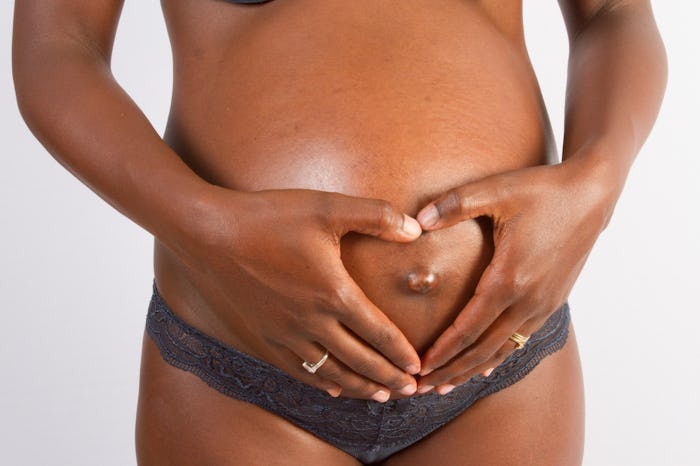During my first trimester of pregnancy, I was ready to try just about anything to get rid of the crippling, seemingly-endless nausea. Ginger ale, crackers, and meditation all failed me. In the face of such suffering, pregnant women are trying marijuana to treat their morning sickness, according to a recent study. The final answer on the effects of smoking or otherwise consuming marijuana during pregnancy remains inconclusive due to numerous conflicting studies. Therefore, experts advise expectant mothers to err on the side of caution and abstain.
The study, published in the journal JAMA Internal Medicine, looked at data concerning more than 220,000 pregnant women in northern California. Researchers determined that pregnant women with severe morning sickness symptoms were nearly four times more likely to use marijuana than those who have no such symptoms, according to Daily Mail UK. Those who reported mild morning sickness symptoms were twice as likely to use marijuana.
Kelly Young-Wolff, a research scientist at the Kaiser Permanente Division of Research in northern California and the study's lead author explained in a statement that her team's findings a part of "a small but growing body of research suggesting that some pregnant women may use marijuana to self-medicate morning sickness." With the rate pregnant women using marijuana on the rise in recent years, according to a 2017 study published in the same journal, understanding the reason behind the use is key.
In general, gauging the exact number of women in the U.S. has been difficult due, at least in part, to reluctance on the part of women. According to NPR, 24 states currently consider marijuana use during pregnancy to be a form of child abuse, so divulging such information can come with serious risks. For Young-Wolff's study, participants, all of whom came from northern California, filled out surveys on their substance use and provided urine samples during their first trimester for drug tests. Researchers used this information, along with the participants' medical records, to determine who used marijuana to treat morning sickness.
Dr. Nancy Goler, an obstetrician/gynecologist at Kaiser Permanente in northern California who was also a senior contributing author on the study, told Live Science that the team hopes their study "can help alert clinicians to the fact that women with nausea and vomiting in pregnancy are more likely to use marijuana." She added that screening and education are important to helping women make smart decisions:
Pregnant women need to be screened and given the information about the possible negative effects while also receiving medically recommended treatment options.
Past studies on marijuana use during pregnancy have provided mixed results. Due to the remaining lack of conclusive research, the Centers for Disease Control and Prevention advise against using marijuana during pregnancy. In a past interview, Dr. Jordan Tishler, a Harvard physician and cannabis therapeutics specialist with more than 23 years of experience, told Romper that potential risks to babies outweigh the possibility of relieving morning sickness:
Whether it might help with morning sickness, and certainly there are lots of anecdotal stories of its helping, it overlooks the risks, which may be quite real. Since there are many other approaches to treating morning sickness, including some pharmaceutical and some non-pharmaceutical, cannabis shouldn’t be used in this manner.
As Tisher pointed out, there are a number of alternative treatments for morning sickness. For some, ginger supplements and regular snacking are enough to stave off nausea. For those with more severe and persistent suffering, doctors can prescribe vitamin B-6 supplements, antihistamines, and even anti-nausea medications to help, as the Mayo Clinic reported. Regardless of which course of action expectant mothers choose to take, opting for one that experts deem safe is the wise move.
